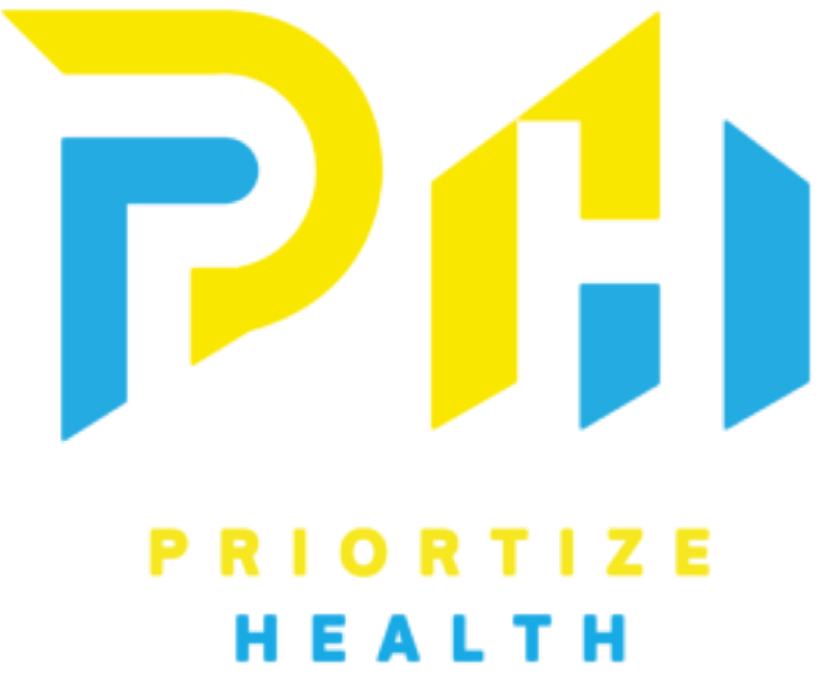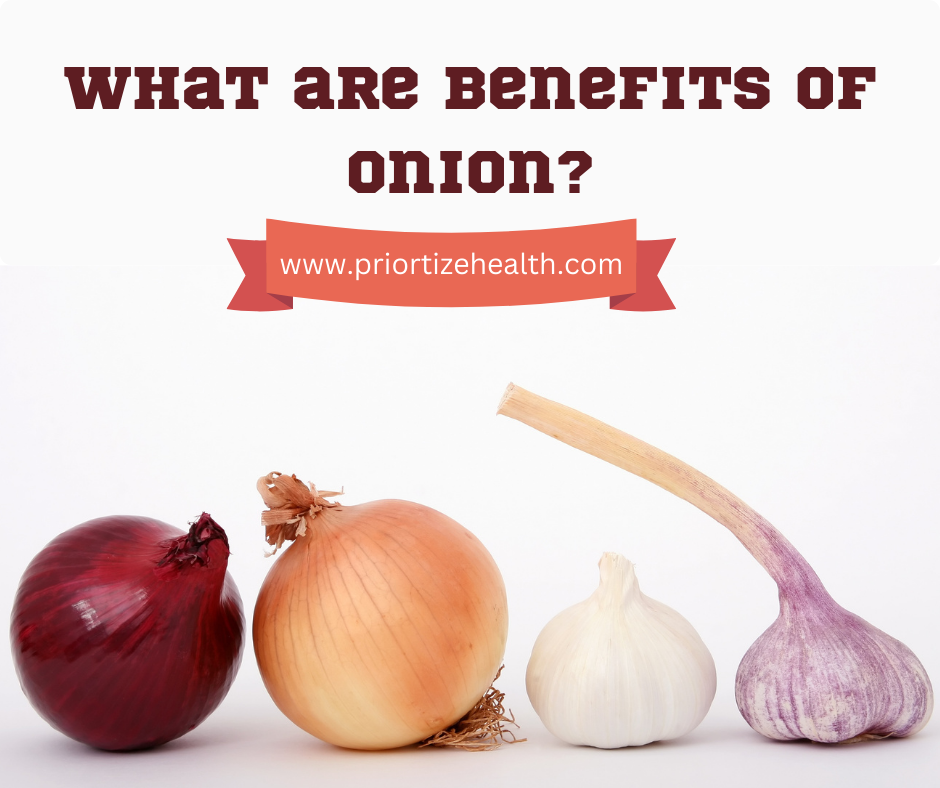
How to get Rid of Allergies Naturally Forever
Living with allergies can be a constant battle, affecting daily life and well-being. The pharmaceutical solutions provide temporary relief. Many individuals seek natural and sustainable approaches to reduce allergies. In this guide, we explore a holistic approach to help you get rid of allergies and foster lasting relief.
A) Identify Allergens:
It involves recognizing and understanding the specific substances or environmental factors. They can trigger allergic reactions in an individual. Allergens are substances that prompt the immune system to react in an abnormal manner. This results in various symptoms like sneezing, itching, swelling, or respiratory distress. The process of identifying allergens is crucial for effective allergy management. Here’s a breakdown of how to approach this:
- Common Allergens:
Recognize common allergens, including pollen, dust mites, mold spores, pet dander, certain foods, insect stings, and various chemicals. Awareness of these common triggers is the first step in pinpointing the source of allergies.
- Observational Analysis:
Pay attention to patterns in allergic reactions. Note when and where symptoms occur. This observational analysis can provide valuable clues about potential allergens. They can be seasonal variations or reactions in specific environments.
- Consultation with Healthcare Professionals:
Seek guidance from allergists or healthcare professionals who can conduct specific tests, including skin tests or blood tests, to identify allergens. These tests can help determine specific substances that elicit an immune response.
- Keep a Symptom Diary:
Maintain a symptom diary to track the timing and severity of allergic reactions. Document details such as the environment, activities, and foods consumed. This can aid in identifying recurring patterns and potential allergens.
- Elimination Diets:
If you suspect food allergies, consider implementing an elimination diet. This involves removing specific foods from the diet for a period. Re-introduce them in a systematic manner to observe any allergic reactions.
- Environmental Assessments:
Conduct assessments of living and working spaces for potential environmental allergens. This may include addressing issues such as mold, dust, or pet allergens. It can be through proper cleaning, ventilation, and maintenance practices.
- Allergen Testing Kits:
Explore the use of home allergen testing kits for common environmental allergens. These kits can provide initial insights into potential triggers. The results may not be as comprehensive as professional testing.
- Consider Genetic Factors:
Genetic factors can influence susceptibility to certain allergies. A family history of allergies can be indicative. This prompts individuals to be vigilant about potential allergens based on genetic predispositions.
B) Balanced Diet:
Consume a variety of foods in appropriate proportions. It will help to provide the necessary nutrients for health and well-being. A well-balanced diet incorporates a mix of macronutrients (carbohydrates, proteins, and fats) and micronutrients (vitamins and minerals). They help to meet the body’s nutritional requirements. Here’s an explanation of the key components of a balanced diet:
- Variety of Foods:
A balanced diet includes a diverse range of foods from different food groups. Some examples are fruits, vegetables, whole grains, lean proteins, and healthy fats. Each food group contributes specific nutrients, ensuring a comprehensive nutritional intake.
- Macronutrient Distribution:
Proper distribution of macronutrients is essential. Carbohydrates provide energy and proteins support muscle function and repair. Fats are necessary for various functions in the body. The proportions may vary based on individual needs and health goals.
- Fruits and Vegetables:
They are rich in vitamins, minerals, fiber, and antioxidants. So, fruits and vegetables play a crucial role in a balanced diet. They support our health, aid digestion, and contribute to disease prevention.
- Whole Grains:
Whole grains provide complex carbohydrates, fiber, and essential nutrients. Some examples are brown rice, quinoa, and oats. They offer sustained energy and contribute to digestive health.
- Protein Sources:
Lean sources of protein include poultry, fish, legumes, nuts, and tofu. They support muscle development, repair, and various physiological functions. Adequate protein intake is essential for our health.
- Healthy Fats:
Incorporate sources of healthy fats. They can be avocados, olive oil, and nuts. These items provide essential fatty acids that support brain health. They help in hormone production and the absorption of fat-soluble vitamins.
- Portion Control:
Maintaining appropriate portion sizes helps prevent overeating. It can ensure a balance of nutrients without excessive calorie intake. Portion control is essential for weight management and our health.
- Hydration:
Water is a fundamental component of a balanced diet. Staying hydrated supports various bodily functions, aids digestion, and promotes well-being.
- Limiting Processed Foods:
Minimize the intake of processed and refined foods. It can often contain excessive sugars, unhealthy fats, and additives. they contribute to a healthier diet. Whole foods with low process are preferred
C) Local Honey and Bee Pollen:
They are natural substances that have gained attention for their potential benefits. They help in addressing allergies, particularly those related to pollen. Here’s an explanation of their use and potential benefits:
- Local Honey:
Local honey is honey produced by bees in nearby areas where an individual lives. The idea behind using local honey for allergy relief is a concept popular by name immunotherapy. Bees collect pollen from local flowers, and traces of these pollens end up in the honey.
Consuming small amounts of local honey might expose the immune system to these local pollens. It helps the body build a tolerance and reduce sensitivity to them. But scientific evidence supporting this theory is limited. The results may vary among individuals.
- Bee Pollen:
Bee pollen is a mixture of flower pollen, nectar, enzymes, honey, wax, and bee secretions. It is collected by bees and brought back to the hive. Some people believe that consuming bee pollen can offer relief from allergy symptoms.
Proponents suggest that bee pollen may have anti-inflammatory properties. They can desensitize the immune system to common allergens. But, scientific research on its efficacy for allergy relief is inconclusive. We should take caution especially for individuals with bee pollen allergies.
- Caution and Considerations:
Local honey and bee pollen are beneficial for natural remedies. But caution is necessary. Individuals with known allergies to bee products should avoid these substances. This will help to prevent adverse reactions.
The amount of pollen in honey and bee pollen supplements can vary. The effectiveness may depend on factors such as the types of pollen present and an individual’s specific allergies. It’s essential to consult with a healthcare professional before incorporating local honey or bee pollen into the diet.
- Alternative Approaches:
For proven allergy relief, individuals should consider other evidence-based strategies. They can be allergen avoidance, proper ventilation, air purifiers. If necessary, they should consider medications prescribed by healthcare professionals.
D) Quercetin-Rich Foods:
They are a group of foods that are high in quercetin, a flavonoid with antioxidant properties. Quercetin is popular for its potential anti-inflammatory and antihistamine effects. This makes it a good choice of dietary component for those seeking natural approaches to manage allergies. Here’s an explanation of this dietary aspect:
- Quercetin Overview:
Quercetin is a plant pigment found in various fruits, vegetables, and grains. It belongs to a group of compounds called flavonoids, known for their antioxidant and anti-inflammatory properties.
- Potential Benefits for Allergies:
Quercetin is popular for its potential to reduce allergic reactions. It stabilizes mast cells and decreases the release of histamine. Histamine is a compound that plays a key role in allergic responses. It contributes to symptoms like sneezing, itching, and nasal congestion.
- Quercetin-Rich Foods:
- Examples:
- Fruits: Apples, berries (particularly cranberries and blueberries), citrus fruits (like oranges and grapefruits).
- Vegetables: Onions, shallots, garlic, kale, spinach, broccoli.
- Other sources: Red and black grapes, cherries, tea, and whole grains.
- Examples:
- Incorporating Quercetin into the Diet:
We can include a variety of quercetin-rich foods in our daily diet. It will help to harness the potential benefits of quercetin. We can achieve it through salads, smoothies, teas, or. Try to incorporate these foods into various recipes.
- Supplementation Considerations:
Quercetin is available in supplement form. But, obtaining it through a well-balanced diet is generally recommended. Individuals considering supplementation should consult with a healthcare professional. It will help to determine appropriate dosages and potential interactions with medications.
- Dietary Benefits:
Beyond potential allergy relief, quercetin-rich foods contribute to our health. They provide essential vitamins, minerals, and fiber. It also supports immune function and reduces the risk of chronic diseases.
- Variety and Moderation:
We should consume a variety of quercetin-rich foods. It ensures a diverse range of nutrients. Individuals should maintain a balanced diet that includes a mix of fruits, vegetables, proteins, and other essential food groups.
E) Probiotics for Gut Health:
It refers to the use of beneficial bacteria, known as probiotics. They help to promote a healthy balance of microorganisms in the gastrointestinal tract. The gut microbiota plays a crucial role in digestion, nutrient absorption, and immune function. Probiotics present in certain foods and supplements can contribute to maintaining or restoring a harmonious microbial environment in the gut. Here’s an explanation of this dietary aspect:
- Probiotics Defined:
Probiotics are live microorganisms like bacteria and yeast. They confer health benefits when consumed in adequate amounts. These microorganisms are often referred to as “good” or “friendly” bacteria.
- Natural Sources of Probiotics:
- Examples:
- Fermented Dairy: Yogurt, kefir.
- Fermented Vegetables: Sauerkraut, kimchi.
- Fermented Soy Products: Miso, tempeh.
- Cultured Drinks: Buttermilk.
- Examples:
- Role in Gut Health:
Probiotics contribute to maintaining a balanced gut microbiota. It is essential for proper digestion, nutrient absorption, and the synthesis of certain vitamins. They also support a robust immune system and help protect against harmful pathogens.
- Allergy and Immune System Regulation:
There is emerging research suggesting that a balanced gut microbiota, influenced by probiotics. They may play a role in regulating the immune system and reducing the risk of allergic reactions.
- Choosing Probiotic Supplements:
For individuals who may not get enough probiotics through their diet, supplements are available. It’s crucial to choose high-quality supplements with strains. Some research states that they are popular for their specific health benefits.
- Balancing the Microbiome:
Factors such as antibiotic use, a diet high in processed foods, and stress can disrupt the balance of the gut microbiome. Probiotics help restore this balance, promoting gut health.
- Prebiotics and Synbiotics:
Prebiotics are non-digestible fibers that nourish beneficial bacteria. Synbiotics are combinations of probiotics and prebiotics. Consuming prebiotic-rich foods can complement the effects of probiotics. They can be in form of garlic, onions, and bananas.
- Incorporating Probiotics into the Diet:
Include a variety of probiotic-rich foods in the diet. This is a practical approach. Experiment with different fermented foods and incorporate them into meals or snacks. This can make it easier to maintain a diverse and healthy gut microbiota.
F) Herbal Teas and Supplements:
The use of specific herbs in tea form or as supplements help to harness their potential health benefits. It also includes relief from allergy symptoms. Herbal teas and supplements are often chosen for their natural and holistic approach. They help in supporting our well-being.
- Herbal Teas:
Herbal teas are infusions made by steeping herbs, flowers, or other plant parts in hot water. Various herbs are popular for their potential anti-inflammatory, antioxidant, and soothing properties. This makes them popular choices for addressing allergy symptoms.
- Examples:
- Chamomile Tea: Known for its calming properties. Chamomile tea may help ease symptoms like nasal congestion and irritation.
- Peppermint Tea: Peppermint has potential decongestant properties. It provides relief for sinus congestion and promotes easier breathing.
- Nettle Tea: Nettle tea has anti-inflammatory properties. It may help reduce allergy symptoms.
- Herbal Supplements:
Herbal supplements are available in various forms like capsules or tinctures, concentrate the beneficial compounds found in herbs. These supplements provide a more concentrated and convenient way to incorporate herbal benefits into one’s routine.
Examples:
Butterbur: Butterbur supplements have the potential to reduce allergic symptoms, particularly those related to hay fever.
Quercetin Supplements: Quercetin, found in certain foods, is available in supplement form. It is popular for its potential anti-allergic and anti-inflammatory effects.
Bromelain Supplements: Derived from pineapple, bromelain supplements may have anti-inflammatory properties. They could help reduce nasal swelling.
- Caution and Consultation:
Herbal teas and supplements are generally considered safe. But it’s crucial to exercise caution. Some herbs may interact with medications or cause adverse reactions in certain individuals. Before incorporating them, individuals should consult with healthcare professionals. This is important for those with existing health conditions or those taking medications.
- Incorporating into Daily Routine:
We can incorporate herbal teas into daily routines. It offers a calming and comforting experience. If the healthcare professionals recommend supplements, we can integrate them into our daily nutritional regimens.
- Holistic Approach:
Herbal teas and supplements are often chosen as part of a holistic approach to health. They may complement other lifestyle changes, such as a balanced diet, hydration, and stress management. It will help to promote our well-being.
- Individual Responses:
Responses to herbal remedies can vary among individuals. It’s essential to pay attention to how the body responds and to stop using if any adverse effects occur.
G) Nasal Irrigation with Saline Solution:
It is a practice that involves flushing the nasal passages with a saltwater solution. This helps to cleanse and moisturize the nasal cavity. The technique is also popular by the name nasal douching or nasal lavage. People use it in various cultures to promote sinus health and relieve nasal congestion.
- Saline Solution Composition:
Saline solution is a mixture of salt and warm water. The salt concentration is like the body’s natural fluids making it gentle and well-tolerated by the nasal passages.
- Mechanism of Action:
Nasal irrigation works by thinning mucus, washing away irritants, and hydrating the nasal tissues. It helps remove allergens, dust, and bacteria. The process also reduces inflammation and promotes clear nasal passages.
- Equipment for Nasal Irrigation:
- Nasal Irrigation Devices:
- Neti PotNasal Bulb Syringe
- Nasal Irrigation Bottles
- Proper Technique:
To perform nasal irrigation, individuals tilt their head to the side over a sink. Pour the saline solution into one nostril. The solution flows through the nasal passages and exits through the other nostril. It carries away debris and mucus. Proper hygiene and sterile water are crucial to prevent infections.
- Benefits for Allergy Relief:
Nasal irrigation helps flush out allergens such as pollen and dust. This provides relief for individuals with allergic rhinitis. Regular nasal irrigation can reduce symptoms associated with allergies, sinusitis, and nasal congestion. This promotes better breathing and comfort.
- Frequency of Use:
We can perform nasal irrigation daily or as needed. It is often used as a part of a comprehensive approach. This helps to manage allergies and sinus conditions.
- Precautions and Considerations:
It’s crucial to use distilled or previously boiled and cooled water to prevent the risk of infection. This is important if tap water is not adequately treated.
Individuals with specific health conditions or concerns should consult with healthcare professionals. They should do so before incorporating nasal irrigation into their routine.
- Adjunct to Other Allergy Management Strategies:
Nasal irrigation is often recommended as part of a broader strategy for managing allergies. It includes lifestyle modifications, allergen avoidance, and, if necessary, medications.
H) Steam Inhalation with Essential Oils:
The process involves inhaling steam infused with aromatic essential oils. It helps to promote respiratory health and provide relief from various conditions, including allergy symptoms. This natural remedy harnesses the therapeutic properties of essential oils. They support respiratory function and reduce nasal congestion.
- Essential Oils:
These oils are concentrated plant extracts that capture the aromatic compounds of plants. Many essential oils have properties that can be beneficial for respiratory health. It includes anti-inflammatory, antimicrobial, and decongestant effects. Eucalyptus, peppermint, tea tree, lavender, and chamomile are some essential oils useful for steam inhalation.
- Steam Inhalation Process:
The steam inhalation process involves adding a few drops of essential oil to hot water and inhaling the steam. The warm, aromatic vapor helps open the airways. It soothes respiratory tissues, and provide relief from congestion.
- Benefits for Allergy Relief:
Steam inhalation can help reduce nasal congestion by loosening mucus and promoting easier breathing. It is a common symptom of allergies. The anti-inflammatory and soothing properties of certain essential oils can provide relief for irritated respiratory tissues. It reduces discomfort associated with allergies.
- Selection of Essential Oils:
Different essential oils offer various benefits. Eucalyptus and peppermint are popular for their decongestant properties. Lavender and chamomile provide a calming effect. Tea tree oil has antimicrobial properties that can support respiratory health. The choice of essential oils can be according to personal preferences and the specific effects desired.
- Precautions and Considerations:
Essential oils are potent, and it’s important to dilute them before use. A few drops in a bowl of hot water are enough. Individuals with respiratory conditions or skin sensitivities should exercise caution. If necessary, they should consult with healthcare professionals before using essential oils.
- Frequency and Timing:
We can perform steam inhalation with essential oils as needed for relief from allergy symptoms. It’s a safe and natural option, we can use alongside other allergy management strategies.
- Variety of Application Methods:
Apart from steam inhalation, we can use essential oils in diffusers, applied topically (when diluted). The other way is to add it to bathwater for various wellness benefits.
I) Natural Allergy-Relief Supplements:
It refers to dietary supplements made from natural ingredients. They may help in reducing allergy symptoms. These supplements often contain compounds with anti-inflammatory, antihistamine, or immune-modulating properties. They are not a replacement for medical treatment. But, some people find relief from allergy symptoms through these natural supplements.
- Quercetin:
It is a flavonoid found in various fruits and vegetables. It contains anti-inflammatory and antihistamine properties. They help in reducing allergy symptoms.
Food Sources: Onions, apples, berries, citrus fruits.
Supplements: Available as quercetin supplements, often combined with other bioflavonoids.
- Bromelain:
It is an enzyme derived from pineapple that may have anti-inflammatory properties. Bromelain may help to reduce nasal swelling and improve breathing.
Food Sources: Pineapple.
Supplements: Available as bromelain supplements.
- Butterbur (Petasites hybridus):
It is a plant extract that has potential to reduce allergy symptoms, particularly those related to hay fever.
Supplements: Available as butterbur supplements, preferably those labelled “PA-free”. They help to avoid certain toxic compounds.
- Stinging Nettle (Urtica dioica):
It is an herb that may have anti-inflammatory effects. Studies state that it may help with reducing allergic rhinitis symptoms.
Supplements: Available as stinging nettle supplements or in combination with other herbs.
- Vitamin C:
It is an antioxidant that may help modulate the immune system. Vitamin C can also reduce histamine levels, providing relief from allergy symptoms.
Food Sources: Citrus fruits, strawberries, bell peppers.
Supplements: Available as vitamin C supplements.
- Probiotics:
Probiotics are beneficial bacteria that support gut health. There is some evidence suggesting that a healthy gut microbiota may influence immune responses and reduce allergy risk.
Sources: Yogurt, kefir, fermented foods.
Supplements: Available as probiotic supplements, with various strains offering different benefits.
- Turmeric and Curcumin:
Turmeric contains curcumin, known for its anti-inflammatory properties. It may help reduce allergy symptoms by reducing inflammation.
Supplements: Available as turmeric or curcumin supplements.
- Omega-3 Fatty Acids:
These fatty acids, found in fish oil and certain plant sources have anti-inflammatory effects. They may contribute to reducing allergy symptoms.
Sources: Fatty fish, flaxseeds, chia seeds.
Supplements: Available as fish oil or algae-based omega-3 supplements.
Caution and Considerations:
- Before starting any supplements, individuals should consult with healthcare professionals.
- Supplements should not replace prescribed medications for severe allergies.
- Quality and purity of supplements are essential; choose reputable brands.
- Follow the dosages as recommended. Consider if there are any potential interactions with medications
J) Regular Exercise:
It refers to a structured and consistent physical activity routine. Regular exercise contributes to our health and well-being. Engaging in regular exercise provides physical and mental health benefits. It plays a crucial role in maintaining a balanced and active lifestyle.
1. Physical Activity Types:
- Aerobic Exercise: Activities such as walking, jogging, swimming, and cycling that elevate heart rate and improve cardiovascular fitness.
- Strength Training: Resistance exercises using weights or resistance bands to build muscle strength and endurance.
- Flexibility and Stretching: Exercises that enhance flexibility, joint range of motion, and reduce muscle stiffness.
2. Stress-Reducing Effects:
- Release of Endorphins: Exercise triggers the release of endorphins, the body’s natural mood lifters. Endorphins contribute to a sense of well-being and act as natural stress relievers.
- Reduction of Cortisol Levels: Regular physical activity helps to lower cortisol levels, helping to mitigate the negative effects of chronic stress.
3. Immune System Support:
- Enhanced Immune Function: Moderate and consistent exercise helps to strengthen immune system. It may help the body better respond to allergens and reduce the severity of allergy symptoms.
4. Anti-Inflammatory Effects:
- Reduction of Inflammation: Chronic inflammation helps in various health issues, including allergies. Regular exercise has anti-inflammatory effects that may contribute to our health and well-being.
5. Improved Sleep Quality:
- Promotion of Restful Sleep: Regular exercise can have positive impact on sleep patterns, promoting better sleep quality. Quality sleep is essential for our health and immune function.
6. Weight Management:
- Healthy Body Weight: Maintaining a healthy weight through regular exercise supports our health. It may reduce the risk of certain conditions, including allergies.
7. Cardiovascular Health:
Improved Heart Health: Aerobic exercise strengthens the cardiovascular system. It promotes better circulation and heart health.
8. Mental Health Benefits:
- Stress Reduction: Exercise is a natural stress reliever. It helps to reduce feelings of anxiety and tension.
- Improved Mood: Physical activity helps to improve mood and a reduce risk of depression.
9. Consistency and Variety:
- Consistent Routine: Developing a consistent exercise routine is essential. Aim for at least 150 minutes of moderate-intensity aerobic exercise per week. Add some strength training exercises at least twice a week.
- Variety: Incorporating a variety of exercises, including aerobic, strength, and flexibility training. It ensures a well-rounded fitness routine.
10. Individualized Approach:
- Consider Personal Preferences: Choose activities that align with personal interests. It increases the likelihood of maintaining a regular exercise routine.
- Adapt to Health Conditions: Individuals with specific health conditions or allergies should consult with healthcare professionals. They can help to tailor an exercise plan that suits their needs.
11. Hydration and Allergy Considerations:
- Stay Hydrated: Proper hydration is essential during exercise. It can also help reduce allergy symptoms by keeping mucous membranes hydrated.
- Outdoor Exercise Caution: Individuals with outdoor allergies should be mindful of pollen levels when exercising outdoors. Consider indoor alternatives during peak pollen seasons.
FAQ’s:
Ans: Permanently stopping allergies is challenging, but managing and minimizing symptoms is achievable. Identify allergens through testing, create an allergen-free living space. Use air purifiers, practice good hygiene, and manage stress. Consult allergists for personalized treatment plans, which may include immunotherapy. While not a guaranteed cure, immunotherapy can desensitize the immune system to allergens. This provides long-term relief. Consistency in allergen management strategies, along with medical guidance would be beneficial.
Ans: For allergy relief, consider drinking herbal teas popular for their anti-inflammatory properties. Green tea with its antioxidants may also offer benefits. Stay hydrated with water to help reduce symptoms. Warm water with honey and lemon can soothe a sore throat. Avoid dairy-based drinks if dealing with congestion. Always consult with healthcare professionals for personalized advice. Ensure that any herbal remedies do not interact with existing medications or health conditions.
Ans: Citrus fruits like oranges, grapefruits, and lemons are rich in vitamin C. They are popular for anti allergic properties and immune support. Apples contain quercetin, which may help reduce allergy symptoms. Berries, particularly strawberries and blueberries, offer antioxidants that contribute to our health. Pineapple contains bromelain, believed to have anti-inflammatory effects. Add variety of fruits to your diet provides essential nutrients. This may manage allergy symptoms, but individual responses can vary.






2 Comments
Excellent blog here Also your website loads up very fast What web host are you using Can I get your affiliate link to your host I wish my web site loaded up as quickly as yours lol
Excellent blog here Also your website loads up very fast What web host are you using Can I get your affiliate link to your host I wish my web site loaded up as quickly as yours lol